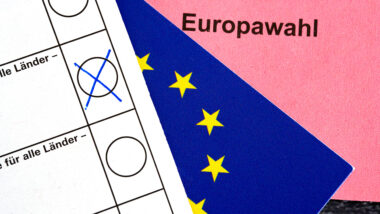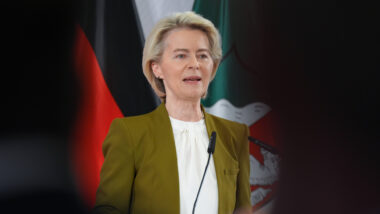Europe has voted. The winners are conservatives, right-wing populists, and extremists. All factions left of the Christian Democrat European People’s Party lose seats.
The biggest losers among them are the Greens. The German Pirates even miss their re-entry, marking the end of an important part of digital civil society in the Parliament. It’s the end of a ten-year era.
In 2014, Felix Reda entered the Parliament as the first German Pirate delegate after Sweden had already elected a Pirate delegate five years earlier. In the next election, Patrick Breyer became Reda’s successor, joined by three Czech Pirates. Breyer’s heir, Anja Hirschel, has now narrowly missed her entry into Parliament with 0,5 percent of German votes. This was the last European election without a minimum threshold in Germany, meaning the German Pirates could have re-entered even with a single seat.
The satire party Die Partei achieved 1.9 percent of the votes, nearly four times as much as the Pirates.
„For us #Pirates, the progressive parties as a whole and for digital civil rights the bitter election result (of course also self-inflicted) is a disaster which will come back to haunt us“, Patrick Breyer has stated on Mastodon. „CDU and AfD triumph, that will mean less transparency and less freedom.“
The Czech Pirates also lost two of their three seats. After the Swedes already lost their delegates in 2014, this means the Pirates once again only have a single delegate. But this one delegate might soon change into a much more powerful position – in the EU Commission. When the Czech Pirates joined their current national government, they did so on the condition that they would be allowed to select the next Czech Commissioner. That would be a novelty: There has never been a Pirate Commissioner so far.
A Parliament of Personalities
But not only the Pirates do digital politics. The EU Parliament is much more driven by personalities than many national assemblies. A single delegate can wield a lot of power if they manage important legislative files.
Take Kim van Sparrentak, for example. She joined the Dutch Greens in 2019, originally as a climate activist. But her national party only had three delegates in the EU Parliament, with one of them – Bas Eickhout – already being a climate specialist. So Sparrentak switched to digital topics. She worked on the AI Act, the Platform Work Directive, and the so-called Airbnb bill. On top of that, she authored a series of reports calling for more rights for internet users and workers. Van Sparrentak will also be a member of the next Parliament.
The Liberals had to take blows all over Europe. But the FDP managed themselves quite well, depending on your perspective: With 5.2 percent, their result is quite similar to the one in the last European election in 2019, but around six percent lower than in the last national German elections in 2021. Their two digital experts Svenja Hahn and Moritz Körner will both rejoin Parliament.
Volt and Conservatives Make Gains
Alexandra Geese negotiated the Digital Services Act for the German Greens. She will also re-enter Parliament, together with her fellow party members Sergey Lagodinsky and Hannah Neumann. Lagodinsky worked on the AI Act as well as the procedural reform of the General Data Protection Regulation, which is currently still being negotiated. Neumann was a member of the Committee of Inquiry into the Pegasus spyware.
Another delegate that was very active in that committee was Sophie in ‘t Veld from the Netherlands. She has been a member of the Parliament since 2004 and worked on a series of digital topics since then. Shortly before the election, she switched from the social liberal D66 to the Volt EU Federalists – and from the Netherlands to Belgium, where she did not get enough votes for a seat yesterday.
Even without her, Volt managed to win two seats in the Netherlands while winning two additional ones in Germany. The so-far only Volt delegate, Damian Boeselager, who worked on the Data Act, will keep his seat.
Also rejoining Parliament are the digital experts of the Christian Democrats, who could slightly bolster their numbers. Christian Ehler, Andreas Schwab, Axel Voss – they all will also sit in the new Parliament. While the SPD achieved its worst-ever showing on the European level, the Social Democrats Birgit Sippel, René Repasi, and Tiemo Wölken will keep their posts for five more years.





0 Ergänzungen
Dieser Artikel ist älter als ein Jahr, daher sind die Ergänzungen geschlossen.